Through the years, entrepreneurs like Henry Ford, Alexander Graham Bell and Bill Gates have built Fortune 500 companies by launching new products. They turned their great ideas into practical products that met important needs in the marketplace. You could follow in their footsteps if you know how to patent an idea and how to develop a product. But there are no sure things in life, so you need to evaluate the risk, too. As Marcus Lemonis says, “The definition of an entrepreneur to me is the willingness to fail, and it takes a lot of guts and a lot of heart to take that chance.”

If you’re wondering how to start a new product, remember that you don’t have to be a Thomas Edison or Steve Jobs with an idea that could change the world. You can be successful by extending your current product line, adding a new feature or two to your existing products or finding a niche market that could benefit from your offerings. For example, Marcus helped a New York City specialty dessert store develop a new line of ice based-desserts with an Asian flavor. The store already had a set of proprietary recipes made with a lower butterfat content – meaning fewer calories – than traditional ice cream. Marcus showed them how to develop a product with flavors that appealed to customers from all cultures and backgrounds looking for a unique treat.
Understand the Business and Legal Issues
When looking at how to start a new product, there are two basic sets of issues to consider: business and legal. From the business standpoint, you need to be sure that there is a good market for your new product. Then you have to know how to develop a product, and be sure you have the financial resources and people in place to bring it to market. Legally, you need to take steps to protect your rights by understanding how to patent your idea. That will protect against other people taking advantage of your idea, while offering you potential new revenue opportunities in the future. Generally, the best way to make sure your product or idea is protected is to consult with an attorney who specializes in this area.
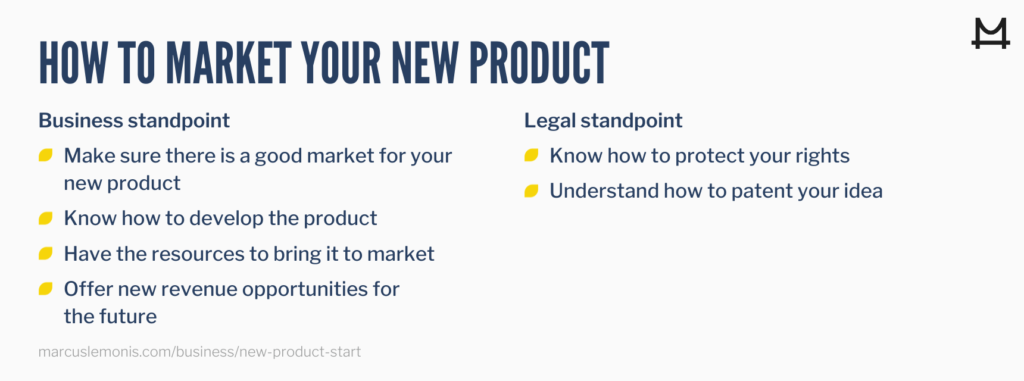
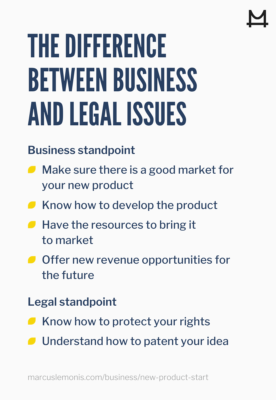
From the business standpoint, you should do your homework and take a close look at the marketplace before investing in a new product line. You should try to identify potential customers, and see what the competitive landscape looks like.
- What is the problem that my product will solve?
- How large is the market?
- What is the pricing for similar products?
- How is my product different from others?
- What internal resources do I need to bring my new product to market?
With this information, you can prepare a solid business plan, including projected revenue and expenses, as well as the timetable for generating those extra dollars. Then, you should also prepare a marketing plan, looking at the best channels to reach your target customers, such as social media, direct mail, outdoor billboards, emails to your customer database – or all of these vehicles.
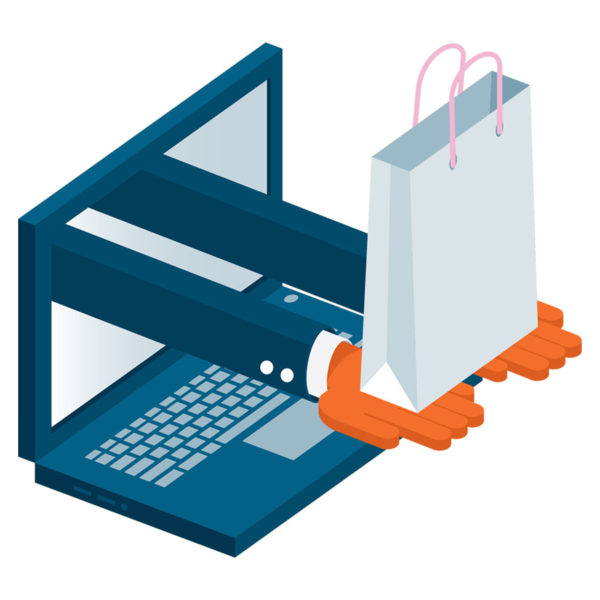
Make a Prototype
When thinking about how to develop a product, making a prototype can provide you with important good information about its design, as well as the features and benefits. A good first step is to start with a drawing of your concept. Then you could use a 3D design or printing application to complete the initial model. Depending on the product type, you might need to engage an engineering or manufacturing firm to complete the prototype. At this stage, you should also consider the type of retail and shipping packaging that might be required to take your new product to market.
Of course, there are many types of products that don’t require such an involved process. If you are creating a new dish for a family restaurant or adding a new T-shirt design to your online store, then the risks may be small. It may take only a small investment of your dollars, so you don’t have to spend so much of your time thinking about how to start a new product. But you should still think about how a new product fits into your business plan, and solicit customer feedback as you roll it out.

For example, Marcus helped a South Florida celebrity chef bring her Latin-inspired line of sauces to area supermarkets. As part of the process, he conducted a focus group to gain customer feedback. During this process, they learned that the group loved the sauces themselves but they felt the packaging needed an overhaul. Marcus helped her consult with a firm to redesign the packaging and the result was the new product being very well received by purchasing agents and distributors as well as retail customers. Gaining that information from potential customers helped her pinpoint the product’s problem areas and hone in on ways to improve it.
Protect Your Idea
Along with making your business plans, you need to take appropriate legal steps to protect your intellectual property (IP) rights, including knowing how to patent an idea. Your goal is both defensive and offensive: making sure no one can copy your products, and preparing the groundwork for turning your rights into a valuable asset, such as increasing the underlying value of your business or generating fees through licensing agreements.

Here are some of the steps in how to patent an idea:
- Document your idea.
Think about when, where and how you came up with your idea for a new product. Then write it down, with as much detail as seems appropriate. If your brain is always coming up with new ideas of one kind or another, you could even start an inventor’s journal, signing and dating each entry. It’s also a good idea to have your initial document signed by a witness who could provide supportive testimony in the event of a lawsuit down the road.
- Conduct a patent search.
Now, you want to be sure that now one else has filed a patent that could affect how to develop a product. In order to protect your invention or product, we recommend engaging an attorney with experience in patent law and intellectual property rights to conduct an initial patent search.
- File for a patent.
Now, your attorney can help you file your own application with the U.S. Patent and Trademark Office (USPTO).
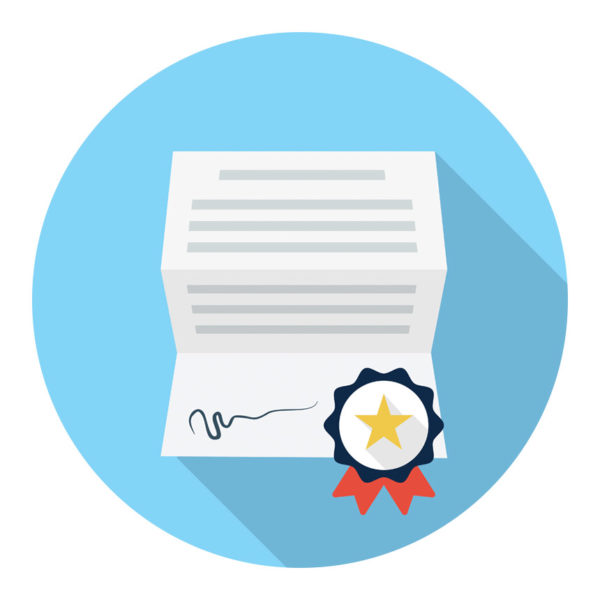
There are three basic types, including a utility patent for new processes or machines, a design patent, and a provisional patent which protects your rights for one year, while your application is pending. Patent applications involve considerable legal and technical knowledge, so your time is probably better spent focusing on your business than trying a do-it-yourself approach. Be sure to discuss fees, as well as the scope of services an IP attorney will provide. For instance, if you expect to see your new product in international markets, you may want to file for patents in other countries, as well as the United States. It is usually faster and more efficient to coordinate these applications, provided your business plan will support the additional expense.
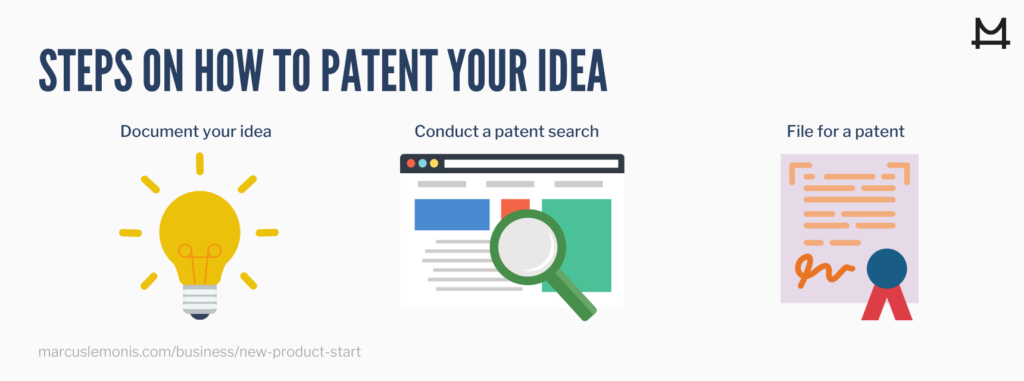
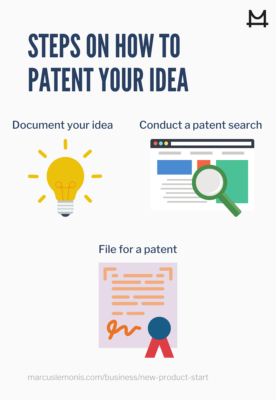
Market Your Product
After completing your business plan, getting customer feedback, developing a prototype and filing a patent application, you now know how to start a new product. But now comes an even more challenging assignment: marketing your product. You need to find the right name for your product and develop branding guidelines that are consistent with your overall approach to business. Does your company offer products that make consumers feel good, or cater to businesses with very specific requirements? Your new product should support that strategy or help you expand to a new market.

You also need to know your customers’ buying journey. Will they learn about your new product from visiting your website, seeing it in a store or searching online? What messaging is most likely to motivate them to consider your new product and add it to their shopping carts? Should you offer a free trial or a money-back guarantee? These are vital questions for any new product rollout, and are covered in other lessons in this series. As Marcus says, new products should be designed to be practical, purposeful and profitable. In any case, building an effective marketing strategy is an essential step when planning how to develop a product.
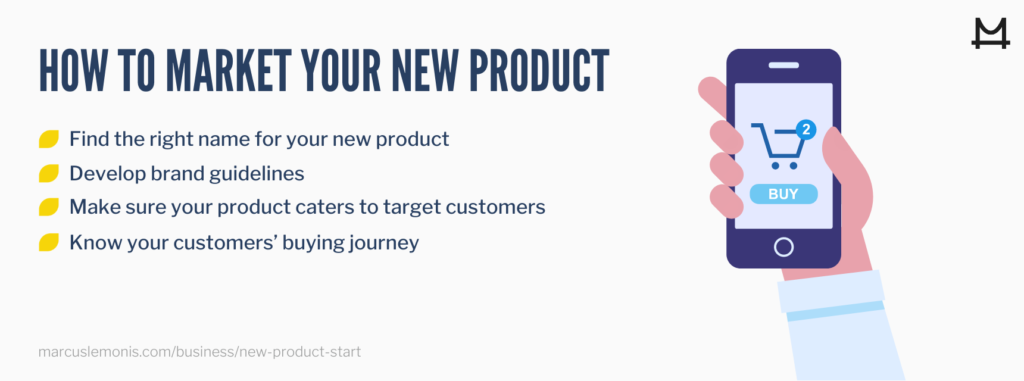
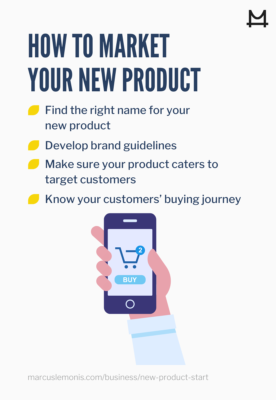
Keep Moving Ahead
Once you have successfully launched a new product, you might be ready to sit back, relax and watch the revenue grow. But becoming complacent is a mistake. Your competitors are watching your success and plotting their next moves. Your customers may be looking for something else now, and see your products as outdated. Therefore, you always need to keep moving ahead.

That means listening carefully to your customers, refining your design and making any needed improvements. You should also be patient, as it can take time for a new product to catch on in the market. So, once you have made it through the challenges and know how to develop a product, take a deep breath and start planning for the next model. One of the benefits of learning how to start a new product is your own experience. With experience, the product development process can go more easily in the future, as your business continues to grow and prosper.
- Do you have an idea for a product?
- What steps went into launching your first product?





